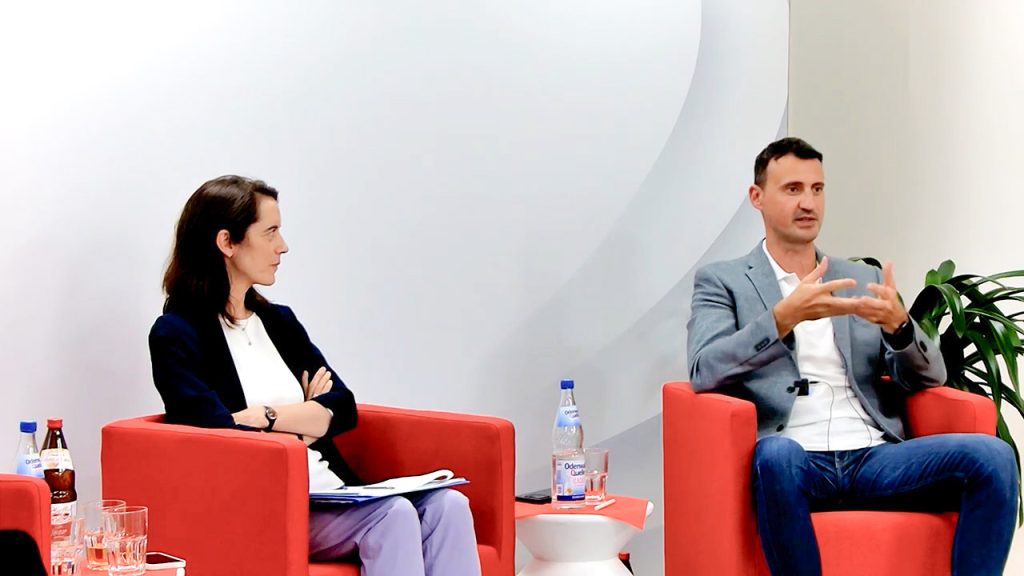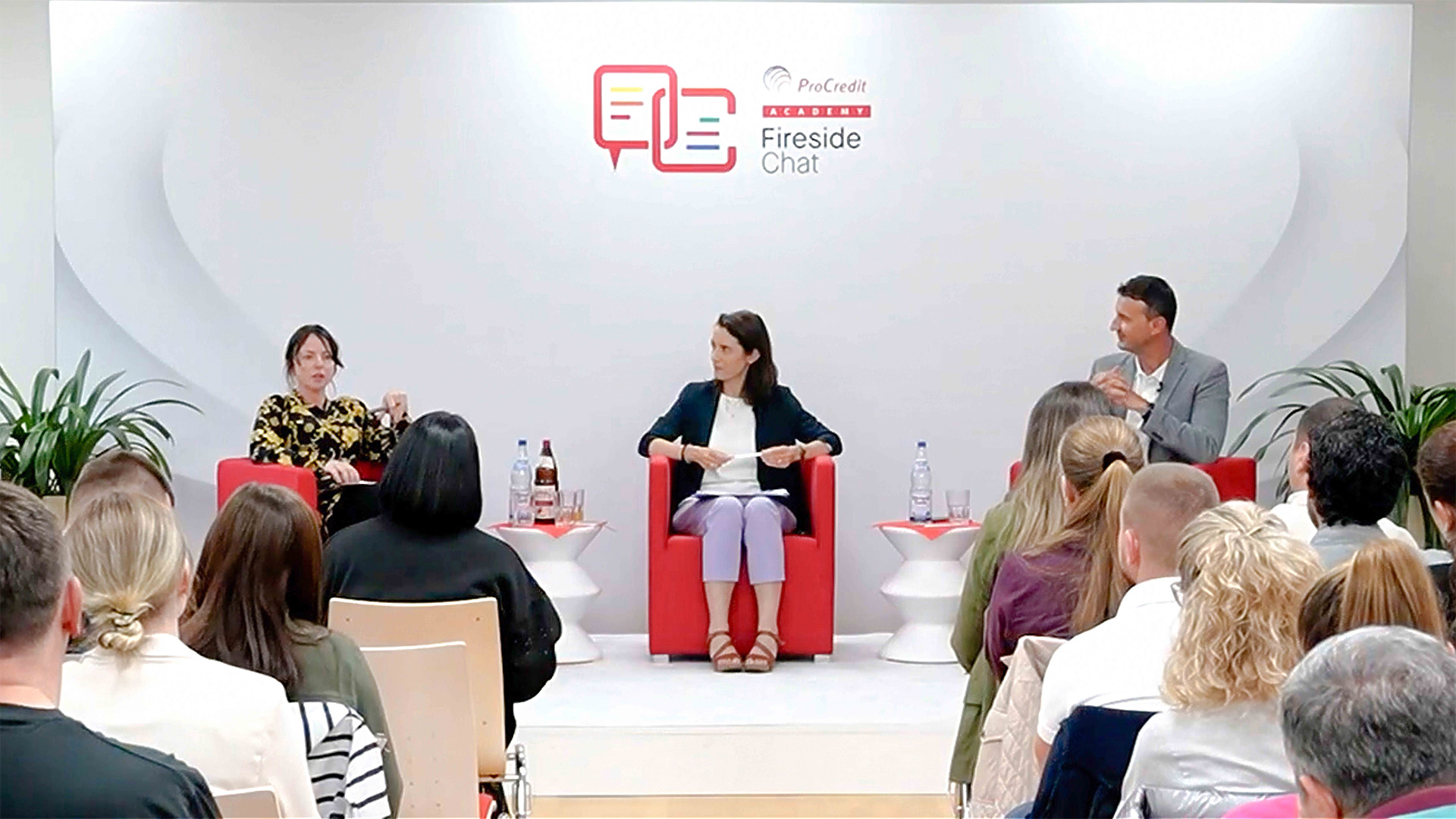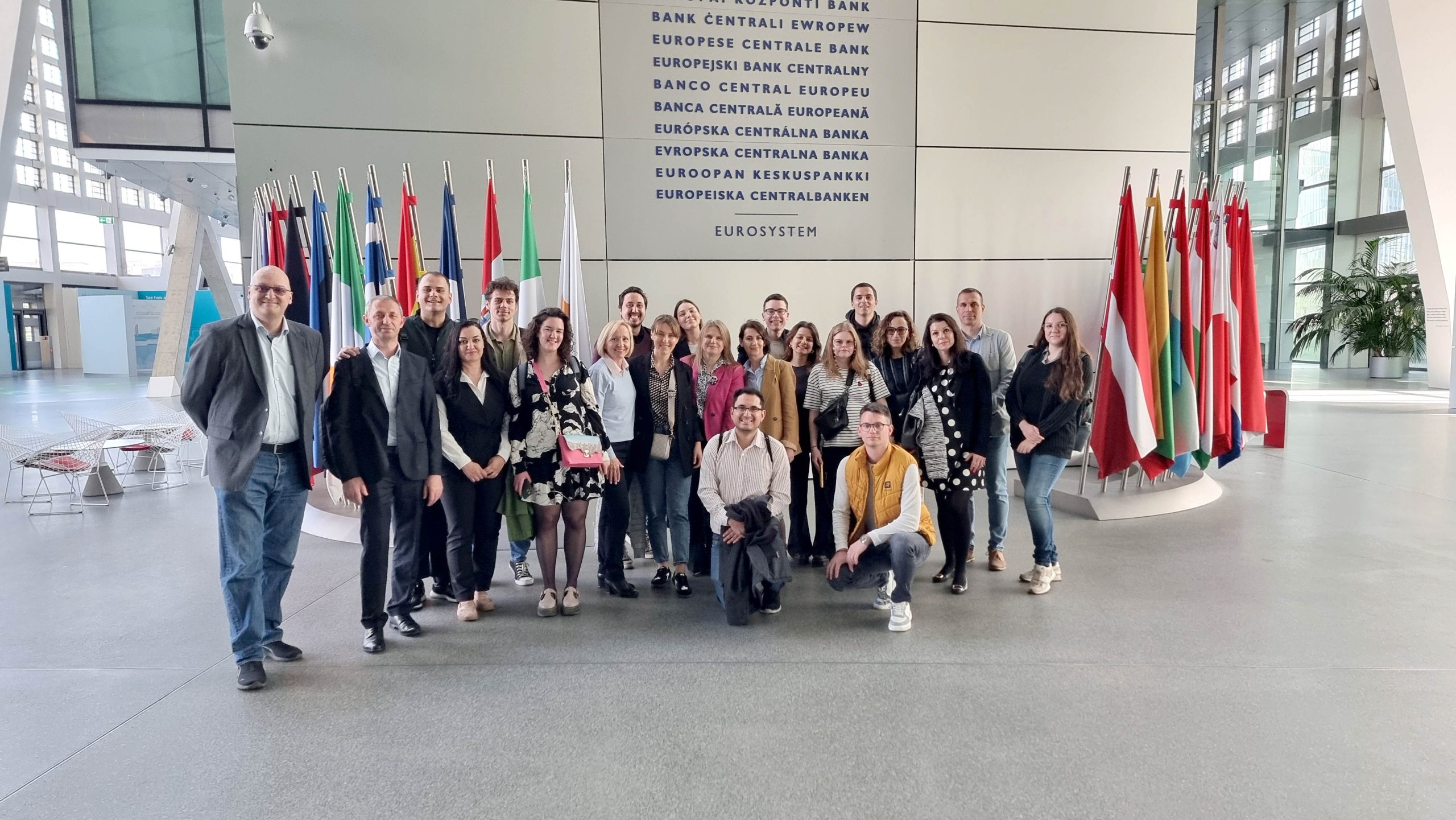ProCredit Academy has launched its new Fireside Chat series with a hybrid event held at the Academy in Fürth. This new format is designed to promote information, exchange, and reflection on current topics for Academy participants as well as colleagues across the ProCredit group.
The first session, titled “Understanding Gen Z: What Managers Need to Know”, was moderated by Charlotte Daly and featured Mathilde D’Orgeval (IPC consultant and project manager for the EBRD’s Youth in Business programme in the Western Balkans) and Gojko Rodić (consultant and trainer for the EBRD’s Youth in Business programme, entrepreneur and sales trainer, former ProCredit Bank employee, and ProCredit Academy alumnus).

The discussion addressed an increasingly important workplace issue: how to effectively manage and collaborate with Generation Z, a cohort now entering the workforce in greater numbers. The speakers outlined four defining traits of Gen Z and what they mean for managers.
Flexibility and Purpose
Gen Z values flexibility in how and where they work and is driven by a strong sense of purpose. They often prioritise meaningful work and impact over titles or hierarchy. Managers were encouraged to connect individual contributions to the organisation’s mission to strengthen motivation and retention.
Tech Savviness
As true digital natives, Gen Z employees are comfortable with technology and quick to adapt to new tools. The speakers highlighted how young colleagues can help modernise workflows and drive digital transformation in the workplace.
Feedback Expectations
Gen Z thrives on frequent, specific, and two-way feedback. The panel recommended short weekly check-ins and informal discussions to replace the annual review. Genuine and timely recognition fosters engagement and continuous learning.
Mental Health Awareness
The speakers noted Gen Z’s openness about mental health and their expectation of empathetic, authentic leadership. This generation values leaders who are emotionally attentive and able to recognise and respond to the challenges their teams face.
The discussion closed with an exchange on the importance of bridging generations to foster dialogue, empathy, and shared learning across age groups.



